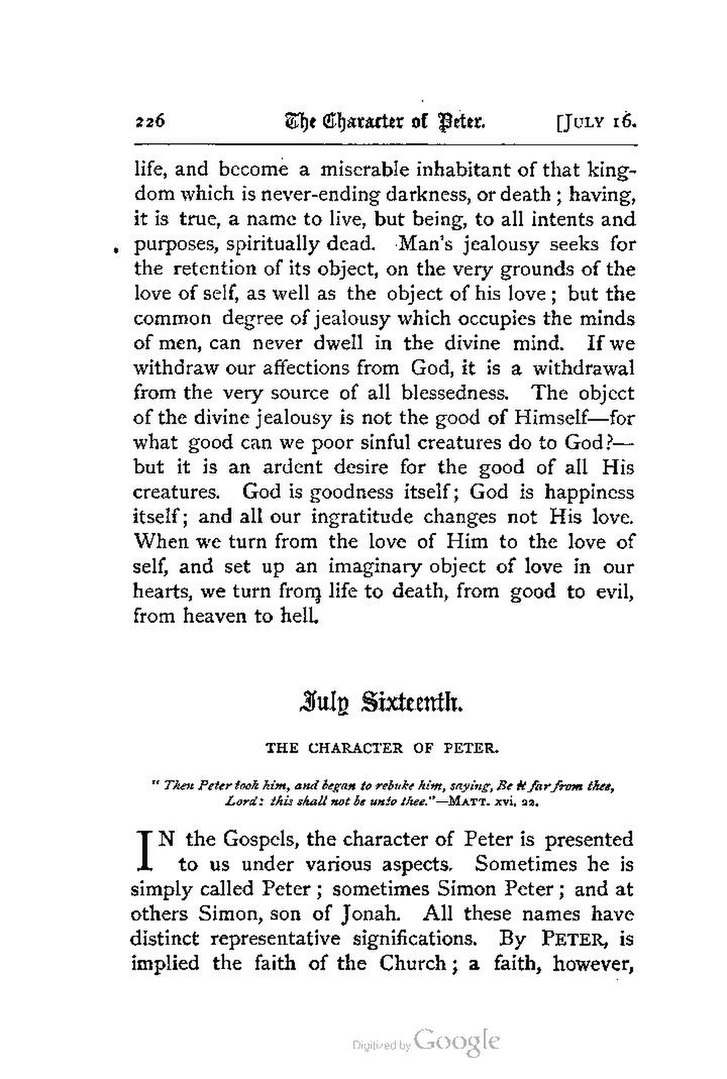life, and become a miserable inhabitant of that kingdom which is never-ending darkness, or death; having, it is true, a name to live, but being, to all intents and purposes, spiritually dead. Man's jealousy seeks for the retention of its object, on the very grounds of the love of self, as well as the object of his love; but the common degree of jealousy which occupies the minds of men, can never dwell in the divine mind. If we withdraw our affections from God, it is a withdrawal from the very source of all blessedness. The object of the divine jealousy is not the good of Himself—for what good can we poor sinful creatures do to God?— but it is an ardent desire for the good of all His creatures. God is goodness itself; God is happiness itself; and all our ingratitude changes not His love. When we turn from the love of Him to the love of self, and set up an imaginary object of love in our hearts, we turn from life to death, from good to evil, from heaven to hell,
July Sixteenth.
THE CHARACTER OF PETER.
"Then Peter took him, and began to rebuke him, saying, Be it far from thee, Lord: this shall not be unto thee."—Matt. xvi. 22.
IN the Gospels, the character of Peter is presented to us under various aspects. Sometimes he is simply called Peter; sometimes Simon Peter; and at others Simon, son of Jonah. All these names have distinct representative significations. By Peter, is implied the faith of the Church; a faith, however,
